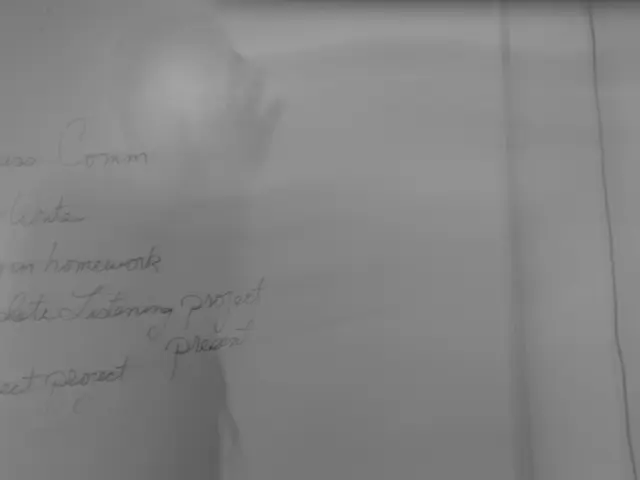Potential deliberate demise of crucial NASA satellite valued by scientists and farmers
NASA's Orbiting Carbon Observatory Missions Under Threat
The Trump administration has requested NASA employees to draw up plans to end at least two major satellite missions, including the Orbiting Carbon Observatory (OCO) missions. The OCO missions, which measure carbon dioxide and plant growth around the globe, are facing termination due to budget priorities and policy decisions rather than scientific or technical reasons.
The OCO satellites provide the most precise global measurements of atmospheric carbon dioxide, enabling scientists to track sources and sinks of greenhouse gases. They have revealed key insights such as the Amazon rainforest emitting more CO2 than it absorbs and boreal forests acting as carbon sinks. The loss of these missions would create a significant gap in continuous high-quality climate data critical for understanding and mitigating climate change.
The satellites also detect the subtle glow of photosynthesis in plants, helping to monitor drought conditions, assess crop health, and anticipate food shortages that can contribute to civil unrest and famine. Loss of this data could impair farmers' ability to manage crops effectively and policymakers' ability to prepare for shortages.
Oil and gas companies, as well as other industries dependent on accurate carbon dioxide data for regulatory compliance and environmental monitoring, would also lose a vital data source. Furthermore, terminating OCO risks weakening U.S. leadership and cooperation in global climate monitoring initiatives, as ongoing satellite data supports international efforts to track emissions and climate change progress.
Experts suggest that instead of destroying the satellite, mothballing it could preserve the option to resume operations if funding or policy priorities change. However, the administration's directive seems to favor outright destruction, which could hamper climate research for decades.
The cost of maintaining the two OCO satellite missions is a small fraction of the amount spent to design, build, and launch the instruments. Despite NASA's formal 2023 review rating the OCO missions' data as "exceptionally high quality" and emphasizing their continued operational capacity and significance, the administration plans to shut down and even destroy the OCO-2 satellite by deorbiting it to burn up in the atmosphere.
NASA has put out a call for private groups to potentially take over the cost of maintaining the OCO-3 instrument, which measures carbon dioxide in Earth's atmosphere. This move suggests the agency is considering privatizing NASA science missions.
The implications of ending the OCO missions extend beyond climate science and agriculture. They impact energy and industry, international collaboration and policy, and more. As the climate changes, the patterns of carbon dioxide absorption by different areas are continuously changing, making accurate and continuous data more crucial than ever.
In conclusion, the termination of the Orbiting Carbon Observatory missions disregards their proven scientific value and operational status. This decision would significantly undermine climate science, agricultural planning, energy sector monitoring, and international climate efforts.
Sources: [1] The Washington Post [2] Nature [3] Bloomberg [4] Scientific American [5] The New York Times
- The proposed termination of the OCO missions might hinder economic growth and options, given their value in tracking climate change and emissions.
- The destruction of the OCO-2 satellite would result in a loss of precision data from space, impacting fields such as environmental science and health-and-wellness.
- The suggested mothballing of the OCO missions provides an alternative to completely ending the valuable data collection and resources they offer.
- An administration's policy decision to terminate the OCO missions could have repercussions on the scientific community and credibility, potentially hindering technology advancements in space-and-astronomy, data-and-cloud-computing, and environmental-science.
- Ending the OCO satellite missions could diminish the USA's standing in international politics and policy-and-legislation negotiations related to climate-change and environmental issues.
- Losing access to accurate carbon dioxide data from the terminated OCO satellites could adversely affect climate-change research, preventing the prediction of climate patterns and taking proactive measures to combat its effects.
- In the field of fitness-and-exercise, increasingly precise climate and environmental data is critical in understanding how climate change will impact nutrition and general-news stories.
- Critics argue that the termination of the OCO missions without considering alternative funding sources or outcomes, such as privatization or public support, is a short-sighted decision that overlooks the benefits they offer.
- The loss of OCO missions can be viewed as a step backwards in scientific progress, as they provide essential data used in modeling carbon sequestration and potential solutions for climate change mitigation.
- The implications of the administration's decision to end the OCO missions have rippled across various sectors, with implications for all aspects of human health, the environment, and industry.




